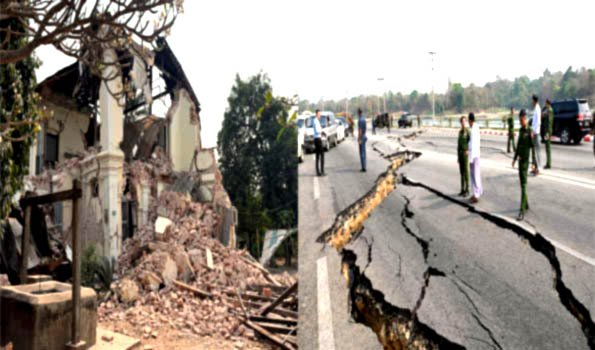New Delhi, Mar 26 (UNI) Terming it as “shocking”, the Supreme Court on Wednesday stayed a controversial order of the Allahabad High Court which said that acts such as ‘grabbing the breasts of a minor girl, breaking the string of her pyjama and attempting to drag her beneath a culvert’ do not amount to the offence of attempt to rape.
The High Court, in its order on March 17, 2025, had observed that such acts would, prima facie, constitute the offence of ‘aggravated sexual assault’ under the Protection of Children from Sexual Offences (POCSO) Act, which carries a lesser punishment.
The High Court bench of Justice Ram Manohar Narayan Mishra had given the judgement in a matter related to an assault on an 11-year-old girl by two accused – Pawan and Akash.
The judgement was widely criticised and triggered a major controversy.
Taking suo motu cognizance of the matter, a Supreme Court bench, comprising Justice B.R. Gavai and Justice A.G. Masih expressed strong disagreement with the judgement of the High Court, calling it “shocking.”
Justice B.R. Gavai remarked, “It is a serious matter. There is total insensitivity on the part of the (Allahabad High Court) judge. This was at the stage of issuing summons! We are sorry to use such harsh words against the judge.”
The bench ordered a stay on these observations and issued notices to the Union of India, the State of Uttar Pradesh, and the parties involved in the High Court proceedings.
Justice Gavai observed that although the Supreme Court is usually hesitant to grant a stay at this stage, the observations made in paragraphs 21, 24, and 26 of the High Court order were contrary to the tenets of law and exhibited an inhuman approach.
Solicitor General Tushar Mehta, while concurring that it was a “shocking” judgement, said the way the matter was handled was extremely serious and suggested that the Chief Justice of the High Court should take steps as the master of the roster.
The case reached the Supreme Court after Senior Advocate Shobha Gupta, representing the NGO We the Women of India, wrote a letter highlighting the controversial ruling.
Another NGO ‘Just Rights for Children Alliance’ said it too is representing the victim in the case.
The Supreme Court said that the NGO ‘We the Women of India’ “brought to our notice” that some observations by the single judge of the Allahabad High Court in the judgment passed on March 17, 2025, showed a total lack of sensitivity on the part of the author of the judgment.
According to the prosecution, the accused, Pawan and Akash, allegedly assaulted the 11-year-old victim. Akash reportedly broke the string of her pyjama and attempted to drag her beneath a culvert.
The trial court initially charged the accused under Section 376 (rape) read with Section 18 (attempt to commit an offence) of the POCSO Act and issued a summoning order.
However, the High Court downgraded the charges, directing that the accused be tried under Section 354-B IPC (assault or use of criminal force with intent to disrobe) along with Sections 9/10 of the POCSO Act (aggravated sexual assault).
The High Court said, “The allegations levelled against the accused Pawan and Akash and facts of the case hardly constitute an offence of attempt to rape in the case. In order to bring out a charge of attempt to rape the prosecution must establish that it had gone beyond the stage of preparation. The difference between preparation and actual attempt to commit an offence consists chiefly in the greater degree of determination.”
The Supreme Court bench said, “We are at pains” to say that “some of the observations” made in the said judgment “depict a total lack of sensitivity on the part of the author of the judgment”.
The top court noted that the judgment was not dictated on the spur of the moment but was delivered after reserving for nearly four months. This meant that the Judge delivered the verdict after due consideration and application of mind, it said.
The Supreme Court bench observed that since the observations are “totally unknown to the tenets of law and depict total insensitivity and inhuman approach”, it was constrained to stay the observations.











